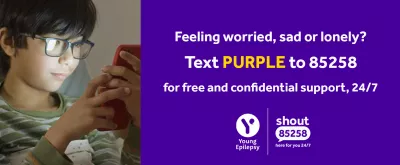Stress Awareness Month is an important time to highlight the unique challenges faced by young people with epilepsy. At Young Epilepsy, we understand that living with epilepsy can be stressful, and we are committed to providing the support needed to improve mental health and wellbeing.
The Impact of Stress on Epilepsy
We know stress can have a significant impact on young people with epilepsy, and is indeed a common trigger for seizures while also exacerbating symptoms, and affecting overall quality of life. For young people, the pressures of school, social interactions, and managing their condition on top can be overwhelming.
Mental Health Support at Young Epilepsy
Young Epilepsy are working hard to raise awareness and advocate for better integration of mental health services in epilepsy care.
Recent statistics show that 30% of children's epilepsy clinics now provide mental health checks, a significant increase from last year's 20%. However, only 18% of healthcare providers include mental health support within epilepsy clinics.
At Young Epilepsy, we recognise the need for integrated mental health care. The recent Bundle of Care from NHS England identified the need to provide comprehensive support by integrating mental health services within epilepsy care. This approach could ensure that young people receive holistic care that addresses both their physical and mental health needs.






